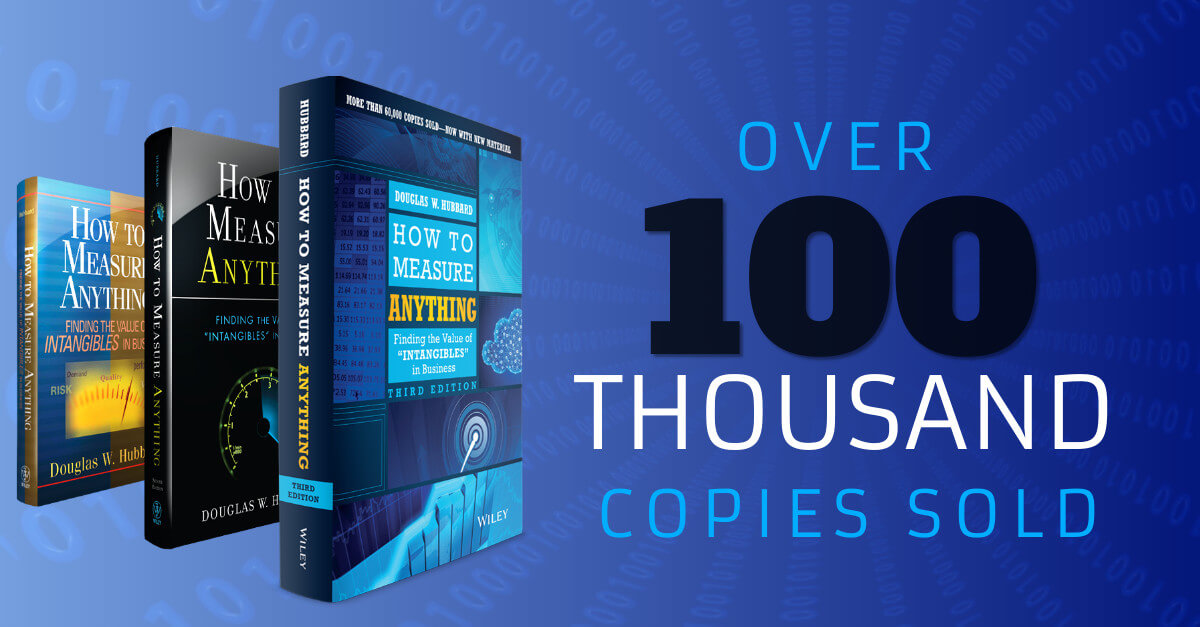Over 12 years ago, on August 3, 2007, the first edition of How to Measure Anything was published. Since then, Doug Hubbard has written two more editions that now have sold over 100,000 copies in that series alone – copies purchased by customers ranging from university professors, scientists, and government officials to Fortune 500 executives, Silicon Valley visionaries, and global leaders in virtually every industry under the sun.
The premise of How to Measure Anything remains true all these years later: that anything can be measured, and if you can measure it – and it matters – then you can make better decisions. These measurement challenges that we’ve overcome over the past 12 years have included:
- the most likely rate of infection for COVID-19
- drought resilience in the Horn of Africa
- the value of “innovation” and “organizational development”
- the risk of a mine flooding in Canada
- the value of roads and schools in Haiti
- the risk and return of developing drugs, medical devices and artificial organs
- the value and risks of new businesses
- the value of restoring the Kubuqi Desert in Inner Mongolia
- the value and risks of upgrading a major electrical grid
- near and long-term reputation damage from data breaches
In addition to learning how to better understand critical measurement concepts by reading How to Measure Anything, thousand of customers from all over the world have obtained proven, industry-leading quantitative training via our series of online webinars and in-person seminars. This includes the ever-growing line of How to Measure Anything-inspired webinars in key areas like:
- Cybersecurity
- Project Management
- Innovation
- Public Policy and Social Impact
- Risk Management
More are on the way. (Do you have an area you’d like us to cover in our training? Tell us here.)
Through this series, they’ve become more calibrated and have learned how to calibrate others in their organizations. They’ve learned how to build their own Monte Carlo simulations in Excel from scratch – no special software needed. They’ve learned how to move away from pseudo-quantitative methods like risk matrices and heat maps in cybersecurity. And they’ve learned how to figure out what’s worth measuring by performing value of information calculations. These are just a few examples of the practical skills and takeaways our customers have received since How to Measure Anything was first published.
We’re also planning on taking quantitative training to the next level in an exciting and ground-breaking development that will be announced later this year.
The era of measurement – the pursuit of modern science – began in 1687 with Newton’s Principia. Finding better ways to create better measurements is the logical next step in the evolution we’ve seen over the past four centuries, and How to Measure Anything will continue to do its part as the world continues further down an uncertain path. Thanks for being a part of the journey. We look forward to what’s to come and hope you continue on with us.
Learn how to start measuring variables the right way – and create better outcomes – with our two-hour Introduction to Applied Information Economics: The Need for Better Measurements webinar. $100 – limited seating.


